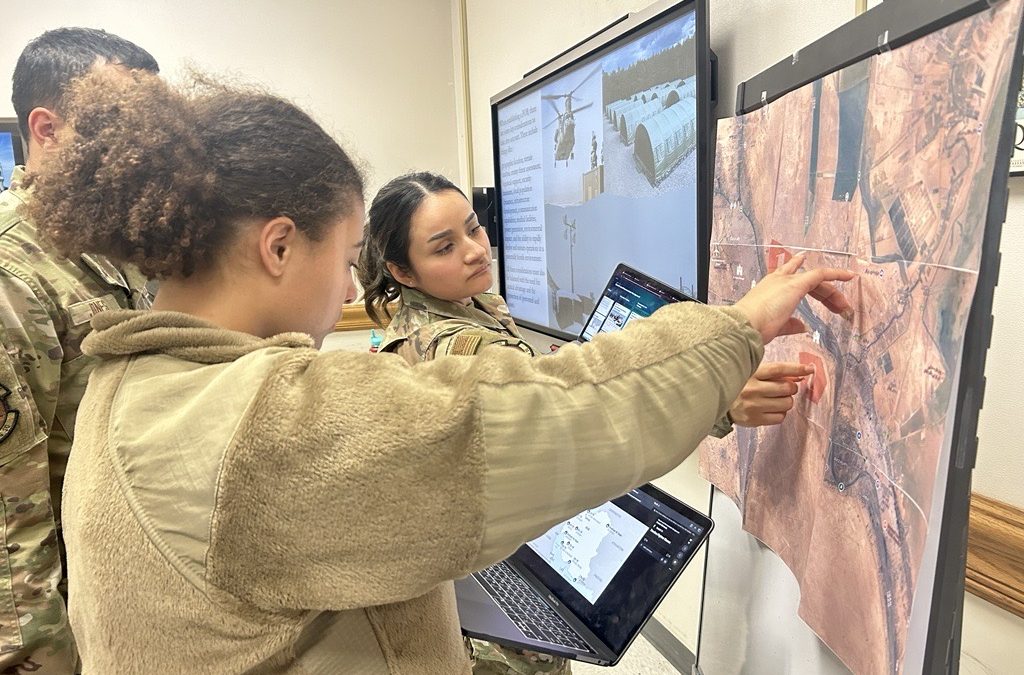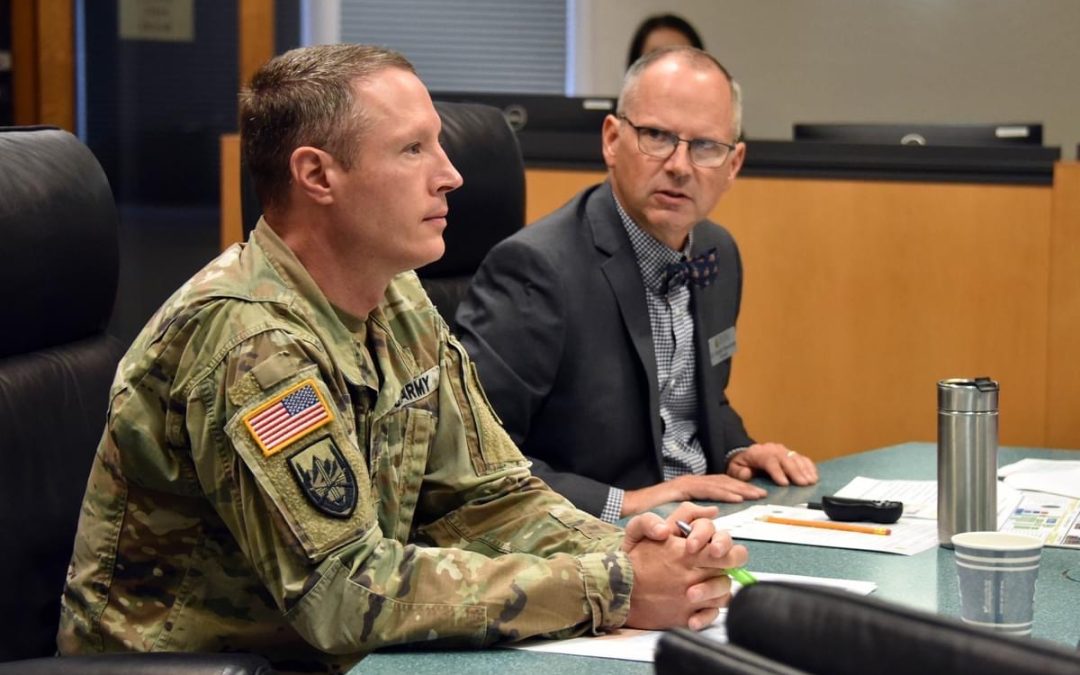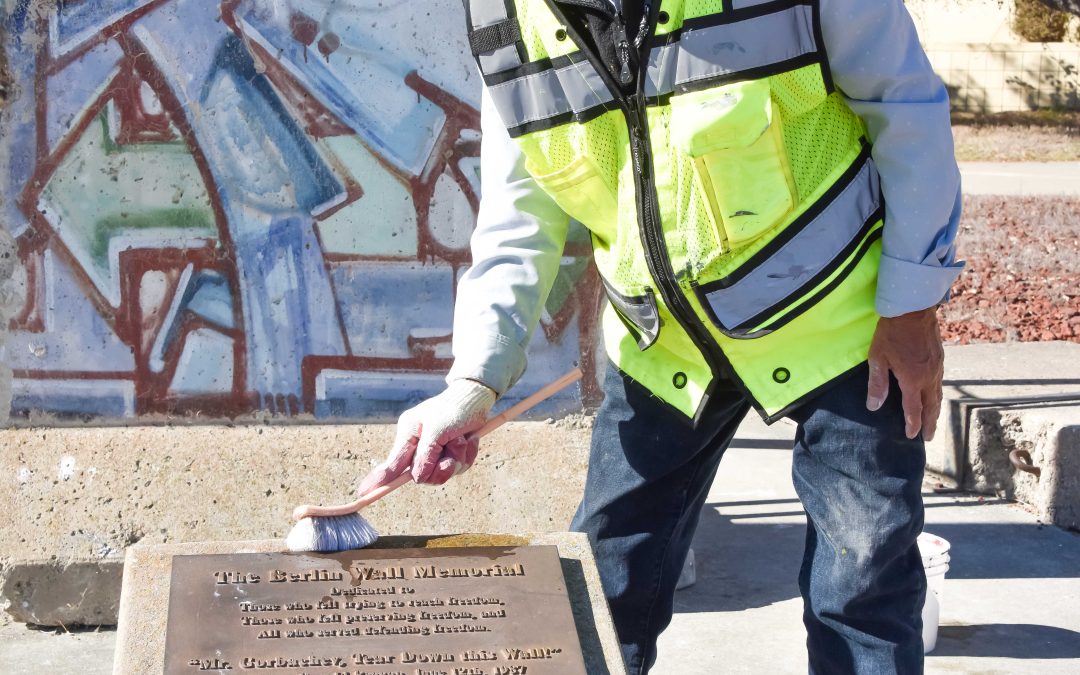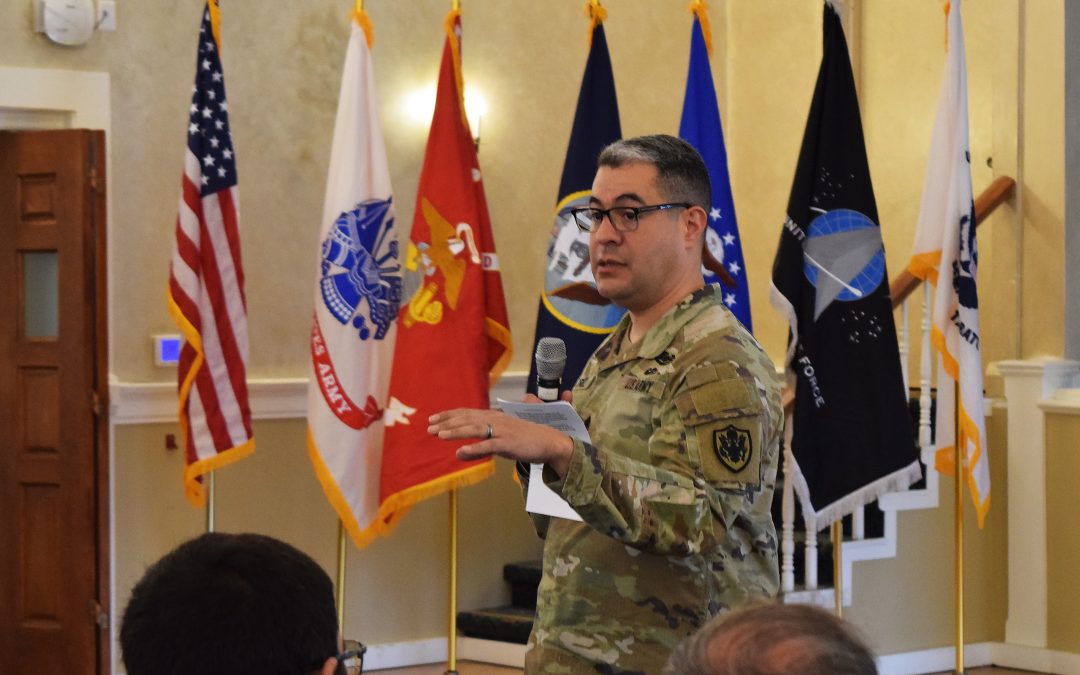At a recent course hosted at the Defense Language Institute Foreign Language Center and Presidio of Monterey, two prominent female Foreign Area Officers gave useful advice and survival tips to young officers just embarking on their new career path.
“It seemed that they (hosts) knew how to compartmentalize the fact that I am a woman,” said Col. Jennifer Griffin, replying to a question about whether she had encountered reluctance to communicate with her because of her gender while working abroad.
“I never experienced anyone putting me down,” she said, adding “It is great when you are in uniform because you are there representing the U.S. government and delivering messages to advance U.S. foreign policy,” Griffin explained, adding that her male counterparts in the Middle East were professional in their exchanges. “If anything, we experience more prejudice in the U.S. than in foreign countries.”
Griffin, along with more than 100 participants from the Army, Marines, Navy and Air Force, attended the Joint Foreign Area Officer Course held in Monterey from Jan 17 to 21. The course, held twice a year in Monterey, is an opportunity for young officers to hear from experts in the field, generals, admirals, former U.S. ambassadors and other professionals.
During the course, a breakout session was organized for young female FAOs to engage with Griffin and Col. Gwyn Carver, policy director for East and Central Africa at the Pentagon.
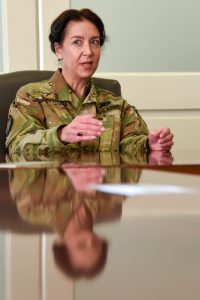
Col. Gwyn Carver has served as the senior defense attaché to West Africa as well as senior military advisor to the White House responsible for promoting U.S. interests throughout Africa, Afghanistan, Mexico, North and Central America.
In the past, Carver served as the senior defense attaché to West Africa as well as senior military advisor to the White House responsible for promoting U.S. interests throughout Africa, Afghanistan, Mexico, North and Central America. She was the first senior U.S. defense attaché assigned to South Sudan when it gained independence in 2011, followed by many other assignments.
Comprising less than 10% of the Army FAO population and about 15% of the joint force, female FAOs often have questions that are more specific and could be considered gender based. One young officer wanted to know the advantages and disadvantages of being a single FAO on assignment.
“Taking unaccompanied jobs can often get you promoted faster than your peers because it sets you apart, just like any other normal job,” said Carver. “But you have to weigh what you want from your career field. Play to your strengths and pursue your passions. You will be happy and because of that you will do your best,” she advised.
Recounting a particular event that took place in Lebanon while on assignment, Griffin said that she had inadvertently sat down at a table that had been intended for males only.
“You just have to understand the culture. Some are more devout than others or have personal space issues,” she said, adding that there is always room for self-correction and that hosts normally do not hold mistakes against the person. “Be conservative, but be flexible,” she said.
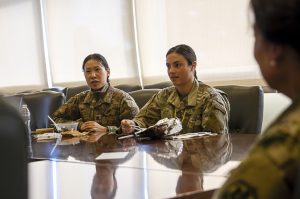
Newly minted female FAOs participate in a brown bag lunch to ask senior FAOs about their experiences in the field.
As a Middle East regional FAO, Griffin began her career in 2004, graduated from DLIFLC’s Arabic program, received a master’s degree in International Security and Development from the Middlebury Institute of International Studies, and later taught Arabic while assigned to the U.S. Military Academy at West Point.
Her FAO career took her to Tunisia, Kuwait, Jordan, Iraq, Afghanistan, Lebanon and back to Tunisia as the senior defense attaché until 2020. She is currently chief of the J52 North, Central and Gulf of Guinea in the Strategy, Engagement and Programs Directorate at U.S. Africa Command in Stuttgart, Germany.
Remembering her time in Iraq in 2009, Griffin said that she worked for Lt. Gen. Charles Jakobi where she advised him on political/military and cultural affairs of the country, and more often than not, found herself translating. “If you are good, you end up using your language in various ways,” she said, though in general terms, FAO strengths lie in their deep understanding of regional politics, history, culture and customs.
As such, FAOs are considered regionally focused experts with political, cultural, sociological, economic, and geographic awareness of the countries they specialize in. Their careers often begin at DLIFLC with studying a foreign language, attending a master’s degree program in their field and spending a year abroad traveling through their assigned region. Twice a year, the newly minted FAOs attend the JFAOC where they have an opportunity to learn about their future profession from a wide array of individuals who are today generals, State Department officials or former ambassadors.

